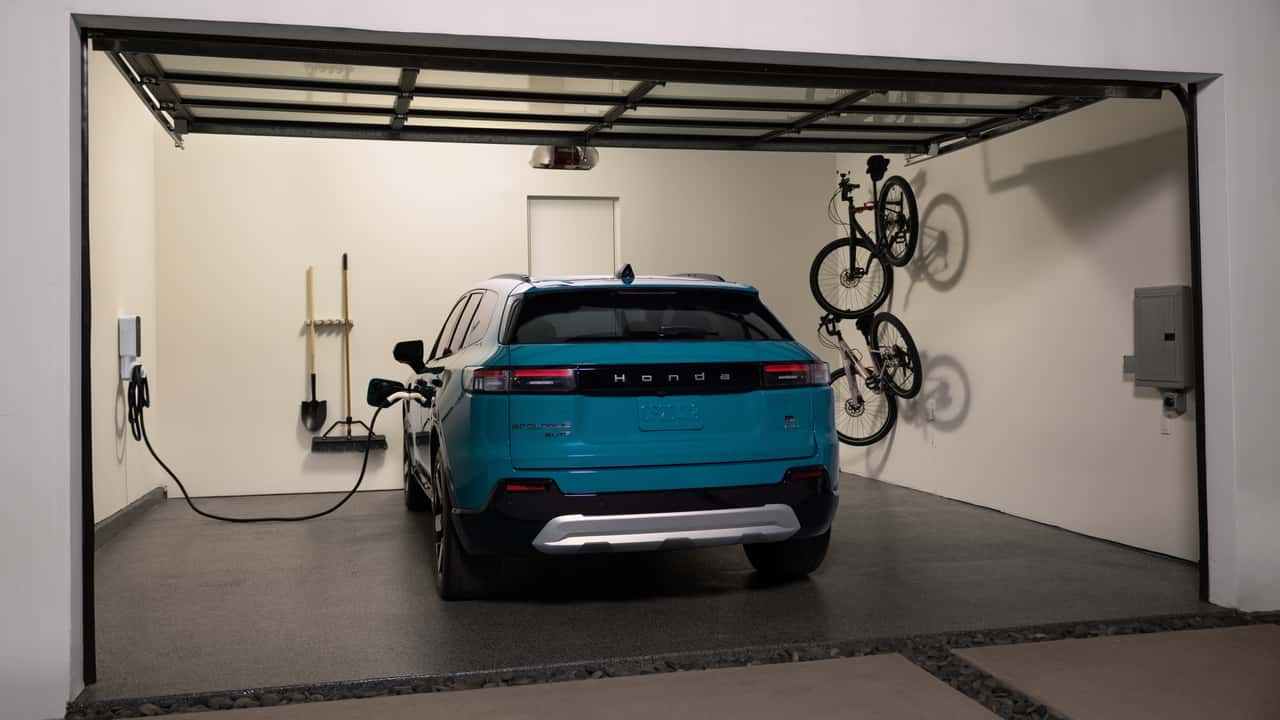Honda has partnered with Mitsubishi Corporation to enhance the value of electric vehicles (EVs) and repurpose old EV batteries. The two companies have signed a memorandum of understanding to explore two new business models that will primarily benefit Japanese EV owners.
The first model, called Battery Lifetime Management, will involve implementing a battery-monitoring system in Honda’s upcoming mini-EVs set to be released in Japan next year. The software aims to maximize the value of the batteries in these vehicles. Rather than being discarded as scrap when they no longer provide a sufficient driving range, the high-voltage car batteries will be repurposed as stationary energy storage and eventually recycled.
The second business model will focus on smart charging and vehicle-to-grid functionalities in future Honda EVs. Through an Energy Management System, the EV’s high-voltage battery will be charged automatically when grid energy is most affordable. Conversely, power from the battery will be returned to the grid at times convenient for the EV owner. This approach aims to reduce electricity bills for EV owners.
In the United States, Honda plans to launch its first all-electric SUV, the Prologue, next year. The company also has other EVs in its global portfolio, including the e:Ny1 crossover for Europe and the N-Van e: commercial kei vehicle recently unveiled in Japan.
As part of its future strategy, Honda intends to invest at least $40 billion by 2030 to increase the share of hybrid and full-electric models to 40% of total sales. This includes the Prologue and Acura ZDX, which are based on General Motors’ Ultium platform. Honda is also developing its own EV architecture for a vehicle set to launch in North America in 2026. Additionally, the company plans to produce its own batteries, with some manufacturing taking place at a $3.5 billion joint venture with LG in Ohio starting in 2025.
Honda and Mitsubishi Join Forces to Give New Purpose to Old Electric Vehicle Batteries
In a time where the world is facing an ever-growing concern over environmental issues, major automakers are stepping up their efforts to address the sustainability challenges imposed by electric vehicles (EVs). Honda and Mitsubishi, two renowned Japanese automakers, have recently announced a groundbreaking collaboration aimed at finding innovative ways to recycle and reuse the batteries of electric vehicles after their lifespan ends.
The widespread adoption of electric vehicles has undeniably contributed to a cleaner and greener future. However, the issue of recycling and disposing of the lithium-ion batteries used in these vehicles has raised concerns regarding their environmental impact. While these batteries can endure thousands of charging cycles, ultimately, their performance and capacity decline, rendering them less suitable for electric vehicles. This led Honda and Mitsubishi to explore new avenues to put these used batteries to good use, proving that their commitment to environmental sustainability extends beyond just manufacturing.
Under this joint initiative, Honda and Mitsubishi will establish a system to collect used EV batteries from their respective customer bases. The batteries will then undergo a rigorous inspection process to determine their remaining capacity and overall condition. The ones deemed suitable for further use will be repurposed, potentially as an energy storage unit or a power supply source for various applications.
Repurposing spent EV batteries into stationary energy storage units is gaining traction in the energy sector. These energy storage systems can be utilized in various ways, such as providing backup power during peak demand periods, reducing strain on the electrical grid, or even integrating renewable energy sources more efficiently. The collaboration between Honda and Mitsubishi aims to harness the latent potential of these used batteries and create a second life for them in the grid energy storage sector.
The strategic collaboration between two industry giants will also contribute to the push for a circular economy, where resources are reused, minimizing waste and conserving valuable resources. Honda and Mitsubishi envision creating a closed-loop system that enables the collection, refurbishing, and repurposing of used EV batteries, ensuring their effective utilization throughout their entire lifecycle.
This effort to recycle and repurpose EV batteries is aligned with the principles of the United Nations Sustainable Development Goals (SDGs). More specifically, this collaboration resonates with Goal 12 – Responsible Consumption and Production. By prolonging the useful life of these batteries, Honda and Mitsubishi are reducing waste and promoting sustainable production practices.
Furthermore, this collaboration signals a shift in the automotive industry’s mindset, where competition takes a back seat to collaboration for the greater good. By joining forces, Honda and Mitsubishi pave the way for similar collaborations between automakers, leveraging their expertise and resources to tackle pressing environmental challenges together.
In conclusion, the groundbreaking collaboration between Honda and Mitsubishi signifies a significant step forward in addressing the environmental impact of electric vehicles. By finding innovative ways to repurpose and recycle old EV batteries, these automakers are redirecting their focus beyond manufacturing and showing their commitment to sustainable practices. This joint effort not only paves the way for further collaborations but also contributes to the circular economy and the United Nations Sustainable Development Goals.

